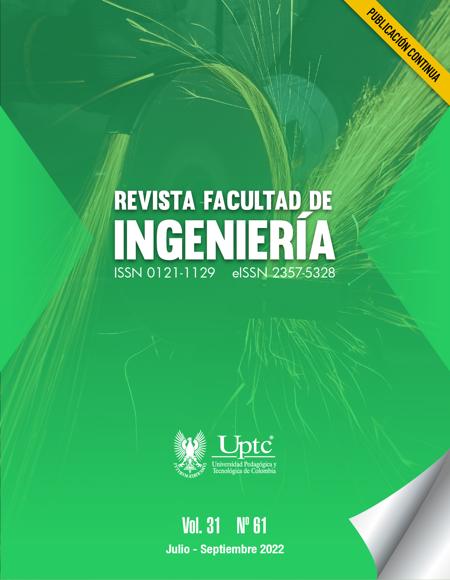Theoretical and Practical Determination of a Binary Mixture of AISI 316 Steel Powders to Increase Corrosion Resistance in Powder Metallurgical Parts

Abstract
Powder metallurgical steels have lower corrosion resistance compared to wrought steels. Their behavior is simultaneously affected by interconnected porosity, pore morphology, interaction with sintering atmospheres, and metallurgical phenomena such as steel 'sensitization'. This work presents the theoretical methodology to calculate the optimum composition of the mixture and the conditions for a maximum packing of two sizes spheres (assuming a spherical shape factor) according to the development published by Brouwers for a system of binary mixtures. For the theoretical determination of the mixture, the results of density and porosity of a 316 powder metallurgical stainless steel made from prealloyed powders of two average granulometries (45μm and 150μm) are presented. The powders were combined in different proportions to define the appropriate quantities that allow the manufacture of steel with a low corrosion rate. The obtained results confirm that the theoretical calculation is a reliable alternative to formulate powder metallurgical alloys since good particle packing is achieved, which has a favorable effect on the characteristics of the finished product.
Keywords
Powder metallurgy, sintered porosity, sintered density, austenitic stainless steels, corrosion rate
Author Biography
Luz-Adriana Cañas-Mendoza
Roles: Investigation; Validation; Formal Analysis; Writing – original draft.
Yaneth Pineda-Triana
Roles: Investigation; Validation; Formal Analysis; Writing – review & editing.
Enrique Vera-López
Roles: Investigation; Validation; Formal Analysis; Writing – review & editing.
References
- H. J. H. Brouwers, “Particle-size distribution and packing fraction of geometric random packings,” Physical Review E - Statistical, Nonlinear, and Soft Matter Physics, vol. 74, no. 3, e031309, 2006. https://doi.org/10.1103/PhysRevE.74.031309 DOI: https://doi.org/10.1103/PhysRevE.74.031309
- S. Schmid, S. Kalpakjian, Manufactura, Ingeniería y Tecnología. Quinta Edición, México, 2008, p. 491
- M. Groover, Fundamentos de manufactura moderna: Materiales, procesos y sistemas, 3rd ed. McGraw-Hill, 2007, p.499.
- P. W. Lee The Timken Co et al., ASM Handbook Vol. 7. Powder Metal Technologies and Applications, 1998, p. 309.
- C. Moral, A. Bautista, F. Velasco, “Aqueous corrosion behaviour of sintered stainless steels manufactured from mixes of gas atomized and water atomized powders,” Corrosion Science, vol. 51, no. 8, pp. 1651–1657, 2009. https://doi.org/10.1016/j.corsci.2009.04.017 DOI: https://doi.org/10.1016/j.corsci.2009.04.017
- C. C. Furnas, Department of Commerce, Bureau of Mines, Report of Investigation Serial No. 2894, 1928; Bulletin of US Bureau of Mines 307, 74 , 1929
- S. P. Pérez Velázquez, Evaluación de la resistencia al desgaste y a la corrosión de un MMC sinterizado por plasma, Universidad Pedagógica y Tecnológica de Colombia, Tunja, 2015
- ASTM B962-15, Standard Test Methods for Density of Compacted or Sintered Powder Metallurgy (PM) Products Using Archimedes’ Pinciple, 2015
- G. S. Upadhyaya, Powder metallurgy technology, 1st ed. Cambridge: Cambridge International Science Publishing, 2002, p. 91
- C. García, F. Martin, Y. Blanco, “Effect of sintering cooling rate on corrosion resistance of powder metallurgy austenitic, ferritic and duplex stainless steels sintered in nitrogen,” Corrosion Science, vol. 61, pp. 45–52, 2012. https://doi.org/10.1016/j.corsci.2012.04.021
- A. Pardo, M. C. Merino, A. E. Coy, F. Viejo, R. Arrabal, E. Matykina, “Pitting corrosion behaviour of austenitic stainless steels - combining effects of Mn and Mo additions,” Corrosion Science, vol. 50, no. 6, pp. 1796–1806, 2008. https://doi.org/10.1016/j.corsci.2008.04.005 DOI: https://doi.org/10.1016/j.corsci.2008.04.005
- E. Zengin, H. Ahlatci, H. Zengin, “Investigation of microstructure, tribological and corrosion properties of AISI 316L stainless steel matrix composites reinforced by carbon nanotubes,” Materials Today Communication, vol. 29, e102758, 2021. https://doi.org/10.1016/j.mtcomm.2021.102758 DOI: https://doi.org/10.1016/j.mtcomm.2021.102758
- T. Takeda, K. Tamura, H. Trans. Brucher, “Pressing and Sintering of Chrome-Nickel Austenitic Stainless Steel Powders,” Journal of the Japan Society of Powder and Powder Metallurgy, vol. 17, no. 2, pp. 70–76, 1970 DOI: https://doi.org/10.2497/jjspm.17.70
- C. García, F. Martin, Y. Blanco, “Effect of sintering cooling rate on corrosion resistance of powder metallurgy austenitic, ferritic and duplex stainless steels sintered in nitrogen,” Corrosion Science, vol. 61, pp. 45–52, 2012. https://doi.org/10.1016/j.corsci.2012.04.021 DOI: https://doi.org/10.1016/j.corsci.2012.04.021
- F. Velasco, J. M. Ruiz-Román, J. M. Torralba, J. M. Ruiz-Prieto, “Corrosion resistance of alloyed powder metallurgy austenitic stainless steels in acid solutions,” British Corrosion Journal, vol. 31, no. 4, pp. 295-299, 1996. https://doi.org/10.1179/bcj.1996.31.4.295 DOI: https://doi.org/10.1179/bcj.1996.31.4.295
- L. Fedrizzi, A. Molinari, F. Deflorian, A. Tiziani, P. L. Bonora, “Corrosion study of industrially sintered copper alloyed 316L austenitic stainless steel”, British Corrosion Journal, vol. 26, pp. 46–50, 1991 DOI: https://doi.org/10.1179/000705991798269378
- M. Rosso, “Contribution to study and development of PM stainless steels with improved properties,” Journal of Achievements in Materials and Manufacturing Engineering, vol. 24, no. 1, pp. 178–187, 2007
- G. S. Upadhyaya, Powder metallurgy technology, 1st ed. Cambridge: Cambridge International Science Publishing, 2002
- ASTM G5-94 Standard Reference Test Method for Making Potentiostatic and Potentiodynamic Anodic Polarization Measurements, 2004